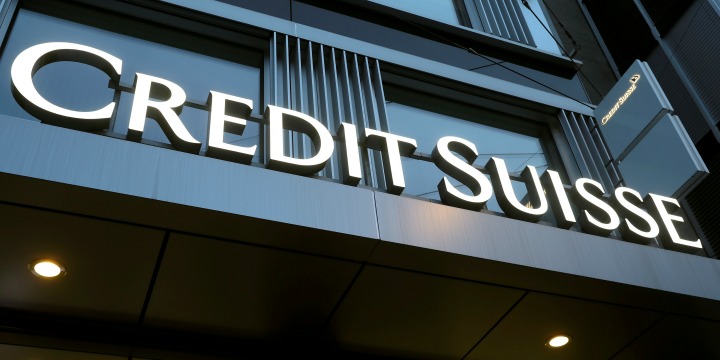 Investigators Exploring Credit Suisse Ties to Nazis Should Be Reinstated, World Jewish Congress Says
Investigators Exploring Credit Suisse Ties to Nazis Should Be Reinstated, World Jewish Congress Says
Dion J. Pierre
 The logo of Swiss bank Credit Suisse. Photo: Reuters/Arnd Wiegmann
The logo of Swiss bank Credit Suisse. Photo: Reuters/Arnd Wiegmann
The World Jewish Congress on Monday called on the Credit Suisse to reinstate two independent investigators — Neil Barofsky and Ira Forman — who were leading an investigation into assistance the Swiss bank allegedly provided to Nazi officials who settled in Latin America, before they were abruptly fired by the bank last November
“Given the Swiss bank’s repeated assurances over the past several decades that it was committed to full transparency in regard to its activities during and after World War II and the Holocaust, we are deeply disappointed that Credit Suisse abruptly fired these two highly respected individuals, who had worked to create a comprehensive report detailing the bank’s shortcomings,” WJC executive vice president Maram Stern said on Monday. “We call on Credit Suisse to immediately reinstate Mr. Barofsky and Mr. Forman and to give them its full cooperation in completing their assigned task. Anything less will put the bank’s good faith into question.”
Credit Suisse, which paid a $1.24 billion settlement to Holocaust victims in 1998, commissioned a new investigation of its ties to Nazis in 2020 after the Simon Wiesenthal Center (SWC), a Jewish rights organization based in Los Angeles, identified 12,000 Nazis who lived in Argentina in the 1930s and deposited money stolen from Jewish victims of the Holocaust into accounts administered by Schweizerische Kreditanstalt, which was later renamed Credit Suisse.
In June 2021, the bank commissioned Barofsky, a former prosecutor, and Forman, a former US Special Envoy for Monitoring and Combating Antisemitism, to investigate the findings. The bank, however, fired both men in Nov. 2022, leaving key questions in the inquiry unanswered, according to an interview Barofsky gave the The New York Times last week. These included “questions about the thoroughness of its prior investigative efforts, the extent to which it served Nazi interests and the banks role in servicing Nazis fleeing justice after the war.”
WJC’s statement on the matter comes on the heels of a scathing report from the US Senate Banking Committee which charged that Credit Suisse did not faithfully examine SWC’s claims and fired Barofsky and Norman to obstruct efforts to assess their veracity.
“When it comes to investigating Nazi matters, righteous justice demands that we must leave no stone unturned,” Sen. Chuck Grassley (R-IA) said last Tuesday. “Credit Suisse has thus far failed to meet that standard.”
Grassley had earlier written in a letter to Sen. Sheldon Whitehouse (D-RI), chairman of the banking committee, that Credit Suisse’s firing Barofsky and Forman was “beyond suspect.”
Credit Suisse has argued in its own report submitted to the US Banking Committee that findings put forward by Barofsky and SWC contain “numerous factual errors, misleading and gratuitous statements and unsupported allegations that are based on an incomplete understanding of the facts.” It has pledged, however, to investigate any role it had in financing ratlines, which were escape routes Nazi officials used in absconding to Latin America.
Menachem Rosensaft, WJC general counsel and associate executive vice president, told The Algemeiner on Tuesday during an interview that “a rule of thumb among lawyers and investigators is that it is usually a very bad sign if someone fires an independent investigator,” explaining that the action “raises all kinds of question and concerns.”
There could be more damaging findings in the bank’s archives, Rosensaft continued, asking, “Otherwise, why fire them?”
The current controversy comes less than a month after Credit Suisse was saved from collapse when it was purchased for $3.25 billion by fellow Swiss investment bank UBS.
Zawartość publikowanych artykułów i materiałów nie reprezentuje poglądów ani opinii Reunion’68,
ani też webmastera Blogu Reunion’68, chyba ze jest to wyraźnie zaznaczone.
Twoje uwagi, linki, własne artykuły lub wiadomości prześlij na adres:
webmaster@reunion68.com
